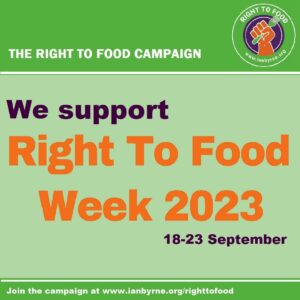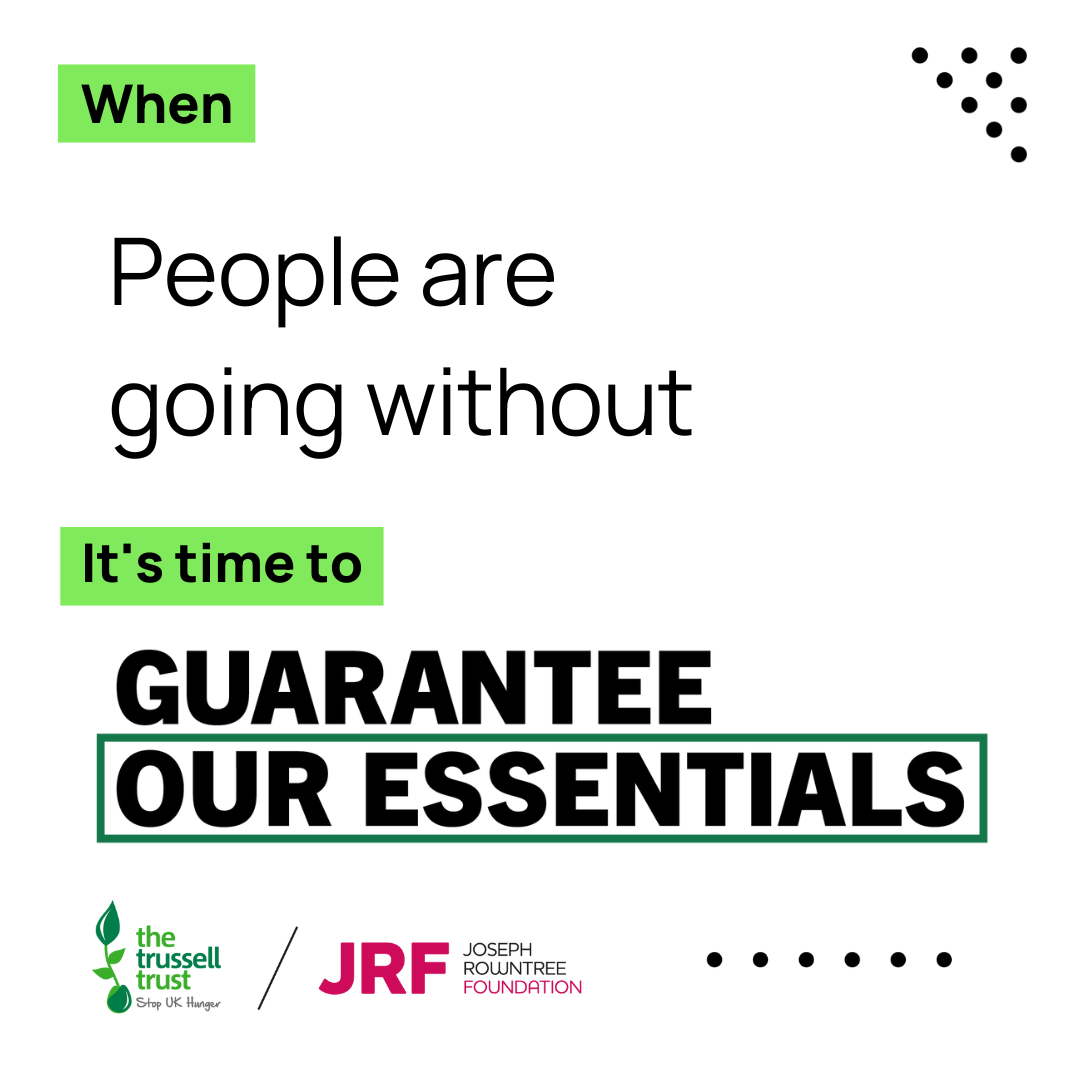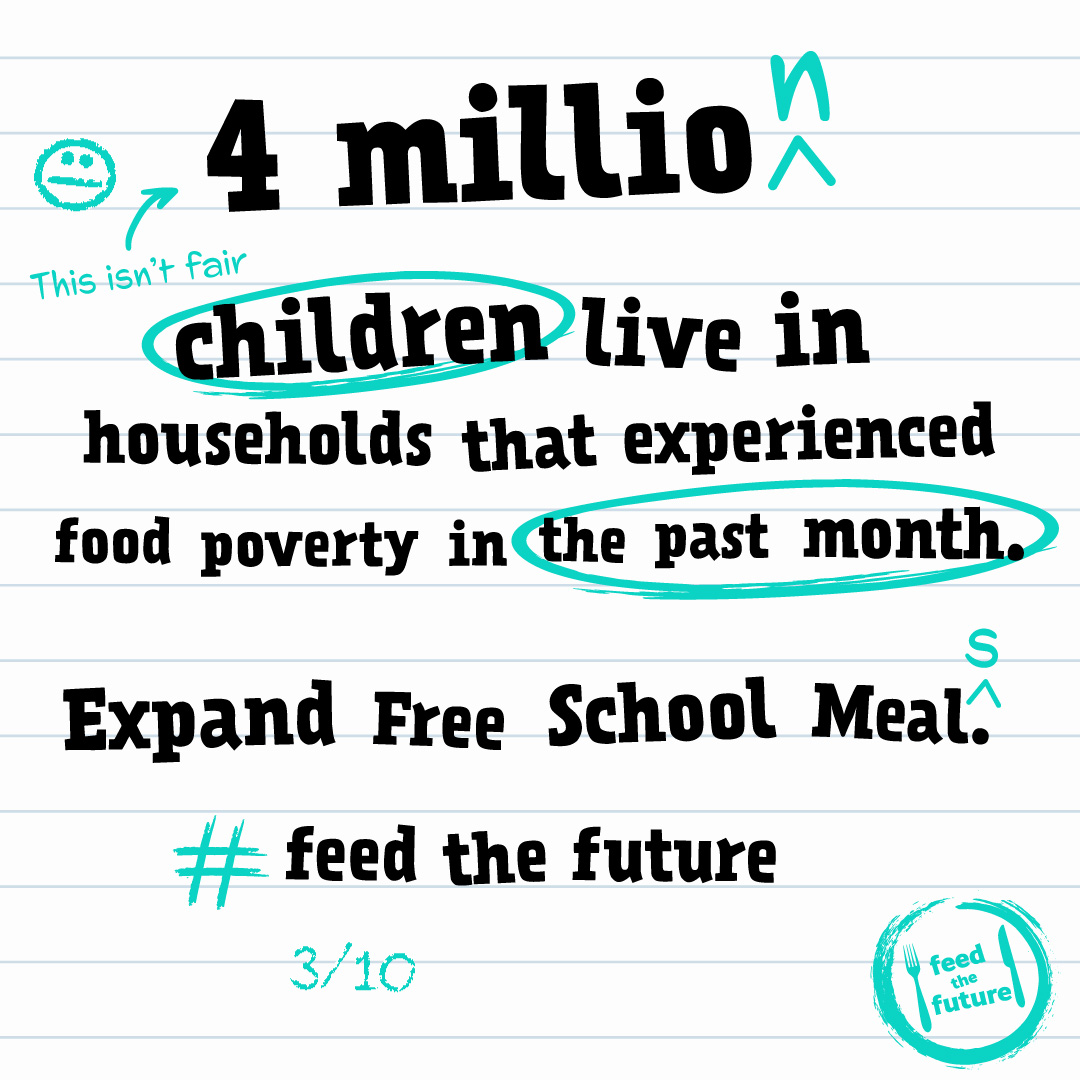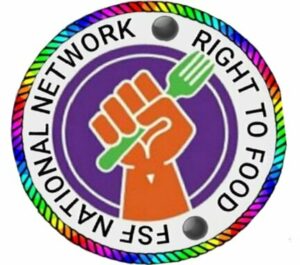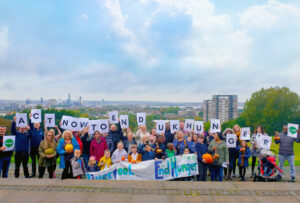
Why are we supporting this campaign?
We want to live in a world where everyone can eat good food.
We want to support the coalition forming around the Plenty to Share campaign in creating a world without food waste or poverty.
We believe that this will be achieved by designing an economic system which wastes less and shares more equally.
This coalition includes our friends and partners IFAN, Feeding Britain, Greenpeace, Friends of the Earth, Together Liverpool, Feedback and many more. Read the full declaration below.
How can I get involved?
Find out more via this article in The Big Issue: ‘System in crisis’ as ministers fail to fight food waste and poverty | The Big Issue
Visit the campaign Toolkit for Change which provides an accessible introduction to the campaigns out there calling for systemic change, and opportunities to get involved
If you’re an organisation, academic or public figure who would like to sign up to the Food Abundance and Equality Declaration please do so via this form and if you’d like to get in touch with the campaign founder please email martin@thisisrubbish.org.uk
Watch Plenty to Share’s videos
Plenty to Share declaration
Read the declaration below and find out more about the campaign: Plenty to Share – This is Rubbish
We the undersigned believe in creating a world without food waste or poverty.
We believe that this will be achieved by designing an economic system which wastes less and shares more equally.
Many of us have worked hard to get surplus food to those most in need through food banks and charities, seeing the urgent needs of hungry people suffering. But this too, as becomes painfully apparent when doing this work, is only a short-term sticking plaster.
The abundance of food we grow and agricultural land we use to grow it should not be wasted in the first place. In a world that is richer than any time in history, and in the sixth richest country in the world[i], nobody should go hungry or need to rely on food charities to survive.
We believe that we have an abundance of wealth, food and land for everyone globally to enjoy a good quality of life on a safe planet, if we redesign the system to waste less and share our abundance more equally. Ultimately, food waste and poverty require two separate sets of systemic solutions. We thus call for the following systemic shifts:
1) Wasting less: We need to design food waste out of the industrial food system – including through regulation, ambitious government action and more equal sharing of the risks and costs of food waste by businesses causing waste – to reduce emissions, free up grassland to plant trees and restore nature, and free up cropland to grow food sustainably so everyone has enough to eat.
2) Sharing more equally: We need to design poverty out of the system so nobody goes hungry, by sharing wealth more equally, strengthening social safety nets, and designing a food system based on people’s needs not profit, to ensure everyone can afford to eat healthy, sustainable and culturally appropriate food.
We live in a world of abundance.
There is enough food produced globally to feed everyone on the planet, plus the people expected on the planet by 2050[i] – but an estimated third of this food is currently wasted[ii]. The cropland freed up by halving UK food waste could produce enough food to feed 28% of the UK population[iii].
But simply ending food waste, or producing more food, will not automatically get food into the hands of those who need it. To do that, we need to end poverty itself.
There is enough money globally to end food poverty multiple times over – but the richest 1% own 44% of the world’s wealth[iv] whilst approximately a quarter of the world’s people are moderately to severely food insecure[v] and nearly half live on less than $5.50 a day (about £4 a day)[vi]. Just 5% of all new income generated since 1990 went to the poorest 60% of humanity – at this rate, to ensure every person earns above $5/day (about £3.70 a day) the global economy would have to grow to 175 times its present size[vii], impossible within environmental limits.
There is enough wealth in the UK to end poverty many times over – but currently over half of the UK’s wealth is concentrated in the hands of the richest tenth of people[viii], whilst an estimated 10% of people (8.4 million) in the UK live in food insecure households[ix].
There is enough money and expertise to save humanity and nature from climate crisis – but only if the richest countries act quickly enough. The richest 10% of people globally already cause half of global emissions, whilst the poorest 50% will bear the brunt of climate crisis despite causing only a tenth of global emissions[x]. Even within the UK, the lifestyles of the richest 10% cause roughly 5 times more emissions per person than the poorest 50%[xi]. Those most responsible for climate change are also those most able to avert it – richer countries need to reduce their emissions as close to zero as possible within the next decade to save us all[xii].
There is enough land globally to restore nature, end species extinction and help avert climate crisis. The FAO estimate that 28% of the world’s agricultural land is used to produce food that is wasted – equivalent to the landmass of India and China combined[xiii]. Halving UK food waste and planting trees on the grassland freed up by this would not only create 3 million hectares of woodland but result in emissions reduction greater than the entire UK agriculture sector[xiv].
There is enough – if we design a system which wastes less and shares more equally within environmental limits.
[i] Stuart, T. (2009) Waste: Uncovering the Global Food Scandal. London: Penguin.
[ii] FAO (2011) Global food losses and food waste: extent, causes and prevention. Rome: FAO. Available at: http://www.fao.org/3/a-i2697e.pdf.
[iii] Feedback (2020) Bad Energy: Defining the Role of Biogas in a Net Zero Future. London: Feedback. Available at: https://feedbackglobal.org/wp-content/uploads/2020/09/Feedback-2020-Bad-Energy-report.pdf (Accessed: 11 September 2020).
[iv] Credit Suisse (2020) Global Wealth Report 2019. Credit Suisse. Available at: https://www.credit-suisse.com/media/assets/corporate/docs/about-us/research/publications/global-wealth-report-2019-en.pdf (Accessed: 9 November 2020).
[v] FAO and IFAD (2020) The State of Food Security and Nutrition in the World 2020: Transforming food systems for affordable healthy diets. Rome, Italy: FAO, IFAD, UNICEF, WFP and WHO (The State of Food Security and Nutrition in the World (SOFI), 2020). doi: 10.4060/ca9692en.
[vi] World Bank (2018) Nearly Half the World Lives on Less than $5.50 a Day, World Bank. Available at: https://www.worldbank.org/en/news/press-release/2018/10/17/nearly-half-the-world-lives-on-less-than-550-a-day (Accessed: 11 September 2020).
[vii] Woodward, D. (2015) ‘Incrementum ad Absurdum: Global Growth, Inequality and Poverty Eradication in a Carbon-Constrained World’, World Economic Review, 4, pp. 43–62.
[viii] In most European countries, the richest 10% own roughly 60% of the wealth, and the poorest half of the population own less than 5%. Source: Piketty, T. (2014) Capital in the Twenty-First Century. Harvard University Press. p. 257
The estimate that in the UK the richest 10% of households hold over 50% of the UK’s wealth is likely to be an underestimate. Source: Alvaredo, F., Atkinson, A. B. and Morelli, S. (2016) ‘The Challenge of Measuring UK Wealth Inequality in the 2000s’, Fiscal Studies, 37(1), pp. 13–33. doi: 10.1111/j.1475-5890.2016.12084.
[ix] End Hunger UK (2019) ‘UK food poverty now a public health emergency’, End Hunger UK, 7 February. Available at: https://www.endhungeruk.org/2019/02/07/uk-food-poverty-now-public-health-emergency/ (Accessed: 4 September 2020).
[x] Oxfam (2015) Extreme Carbon Inequality. Oxfam. Available at: https://d1tn3vj7xz9fdh.cloudfront.net/s3fs-public/file_attachments/mb-extreme-carbon-inequality-021215-en.pdf. p. 4
[xi] Oxfam (2015) Extreme Carbon Inequality. Oxfam. Available at: https://d1tn3vj7xz9fdh.cloudfront.net/s3fs-public/file_attachments/mb-extreme-carbon-inequality-021215-en.pdf. p. 7
[xii] Civil Society Review (2018) After Paris: Inequality, Fair Shares, and the Climate Emergency – A Civil Society Science and Equity-Based Assessment of the NDCs. Civil Society Review. Available at: http://civilsocietyreview.org/files/COP24_CSO_Equity_Review_Report.pdf (Accessed: 31 August 2019).
Climate Equity Reference (2019) Climate Equity Reference Calculator, Climate Equity Reference Calculator. Available at: https://calculator.climateequityreference.org/ (Accessed: 30 August 2019).
[xiii] FAO (2013) Food Wastage Footprint: Impacts on natural resources – Summary report. Rome: FAO.
[xiv] Feedback (2020) Bad Energy: Defining the Role of Biogas in a Net Zero Future. London: Feedback. Available at: https://feedbackglobal.org/wp-content/uploads/2020/09/Feedback-2020-Bad-Energy-report.pdf (Accessed: 11 September 2020).
[i] IMF (2020) International Monetary Fund World Economic Outlook (October – 2019) – GDP statistics, International Monetary Fund. Available at: https://tinyurl.com/y2wmcnes (Accessed: 4 September 2020).
